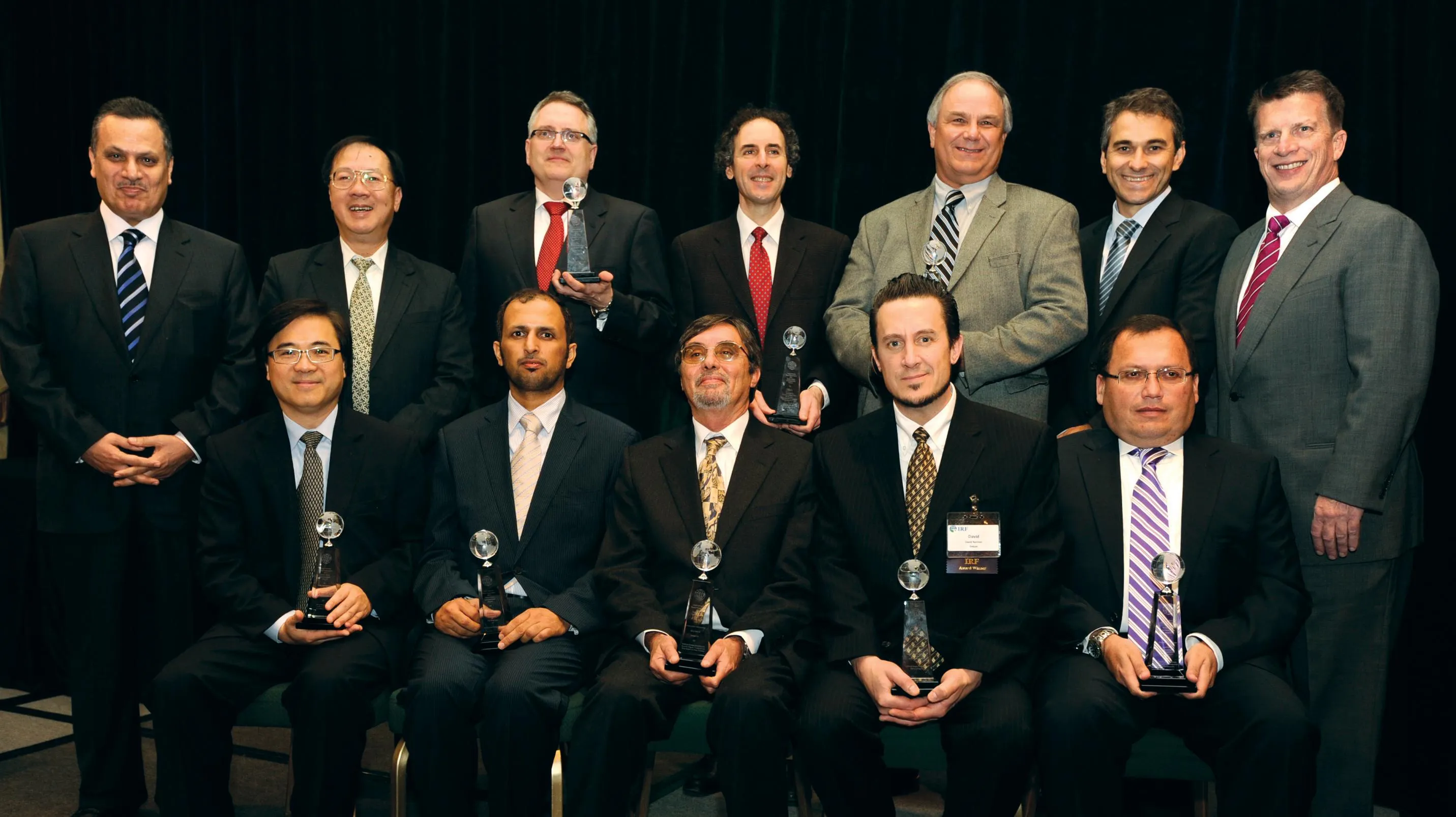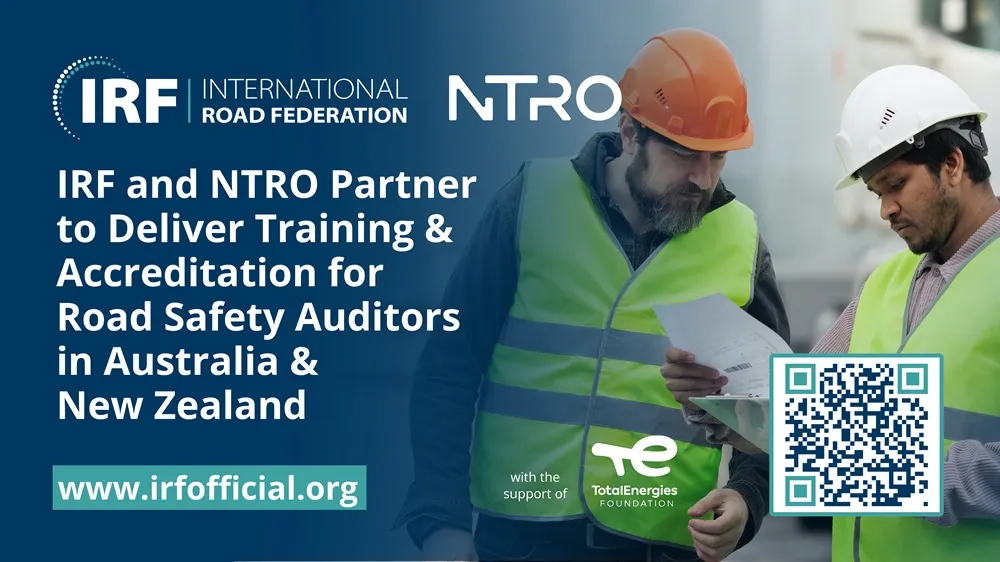The International Road Federation (IRF) recognised the winners of the 2011 Global Road Achievement Awards (GRAA) Competition at the 11th Annual IRF Awards Luncheon in front of an audience comprising hundreds of high-level government officials, top executives, and other road industry professionals.
March 15, 2012
Read time: 3 mins

The 713 International Road Federation (IRF) recognised the winners of the 2011 Global Road Achievement Awards (GRAA) Competition at the 11th Annual IRF Awards Luncheon in front of an audience comprising hundreds of high-level government officials, top executives, and other road industry professionals. Nine projects, ranging from Quality Management Oversight Systems to new highway connections with wide-ranging socio-economic impacts received the coveted award.
The IRF GRAA program is a worldwide competition to identify and honour excellence, innovation, and exceptional achievement in vital road and transport sector categories. The program gathers information on successful projects from leading industry organisations, draws attention to the winning projects, and provides examples of best practices and latest technologies.
“Since 2000, IRF has used the Annual Awards Luncheon to recognise companies, organisations, industry professionals and students for their tremendous work and leadership in the road industry”, said Patrick Sankey, President & CEO of IRF-Washington in his introductory address. Congratulating the winners,3918 IRF Washington Chairman Abdullah A Al-Mogbel added: "much of what road builders do is lost or forgotten by the hundreds of millions of people who benefit so greatly from the work of the road development industry. This is precisely why IRF's Global Road Achievement Awards provide a rare opportunity to celebrate our industry's successes and highlight how our work helps achieve broader development goals."
Delivering the luncheon’s keynote address, Michigan State Transportation Director and3510 American Association of State Highway and Transportation Officials (AASHTO) President Kirk Steudle noted that the international perspective that is available through IRF can assist in crafting solutions that also make sense in the United States.
“States are – like all of you – looking for ways to innovate, improve efficiencies and get more performance from the workforce and systems we have” he added. “Research informs our decision-making processes – we use it every day to solve problems, large and small. The investment, once moved into practice, results in increased efficiencies real products that states can use”.
Steudle gave examples of research being put to work such as the US2410 Federal Highway Administration’s Every Day Counts program that takes effective, proven and market-ready technologies and tries to get them into widespread use. In 2012, EDC is highlighting adaptive signal control, GRS-IBS which uses alternating layers of compacted granular fill material and fabric sheets of geotextile reinforcement to provide support for small bridges - safety edge technology which redesigns the road edge to increase safety for motorists.
Steudle also cited AASHTO’s Technology Implementation Group, which selects highly valuable but unrecognised procedures, processes and innovation that have been adopted by at least one agency, are market ready and are available for use by other interested agencies.
“I congratulate the winners of the 2011 Global Road Achievement Awards. To earn this kind of significant recognition, you already understand the value of innovating and the importance of putting the best and brightest new ideas to practice.”
The luncheon also provided an opportunity to reflect on the devastation caused on March 11, 2011 by an earthquake off the East coast of Japan. Among other impacts, infrastructure and supply chains were disrupted in large portions of the country. “Within a month”, noted Patrick Sankey “The IRF launched the IRF-2463 Japan Road Association disaster relief fund aimed to raise funds for training, research and educational grants dedicated to the rebuilding of Japan's road network. In a time of need, the road community responded spontaneously and generously.”
Representing the Japan Road Association, Moriyasu Furuki, received on this occasion a donation from IRF Washington Chairman Abdullah A Al-Mogbel on behalf of IRF members worldwide.
The IRF GRAA program is a worldwide competition to identify and honour excellence, innovation, and exceptional achievement in vital road and transport sector categories. The program gathers information on successful projects from leading industry organisations, draws attention to the winning projects, and provides examples of best practices and latest technologies.
“Since 2000, IRF has used the Annual Awards Luncheon to recognise companies, organisations, industry professionals and students for their tremendous work and leadership in the road industry”, said Patrick Sankey, President & CEO of IRF-Washington in his introductory address. Congratulating the winners,
Delivering the luncheon’s keynote address, Michigan State Transportation Director and
“States are – like all of you – looking for ways to innovate, improve efficiencies and get more performance from the workforce and systems we have” he added. “Research informs our decision-making processes – we use it every day to solve problems, large and small. The investment, once moved into practice, results in increased efficiencies real products that states can use”.
Steudle gave examples of research being put to work such as the US
Steudle also cited AASHTO’s Technology Implementation Group, which selects highly valuable but unrecognised procedures, processes and innovation that have been adopted by at least one agency, are market ready and are available for use by other interested agencies.
“I congratulate the winners of the 2011 Global Road Achievement Awards. To earn this kind of significant recognition, you already understand the value of innovating and the importance of putting the best and brightest new ideas to practice.”
The luncheon also provided an opportunity to reflect on the devastation caused on March 11, 2011 by an earthquake off the East coast of Japan. Among other impacts, infrastructure and supply chains were disrupted in large portions of the country. “Within a month”, noted Patrick Sankey “The IRF launched the IRF-
Representing the Japan Road Association, Moriyasu Furuki, received on this occasion a donation from IRF Washington Chairman Abdullah A Al-Mogbel on behalf of IRF members worldwide.






